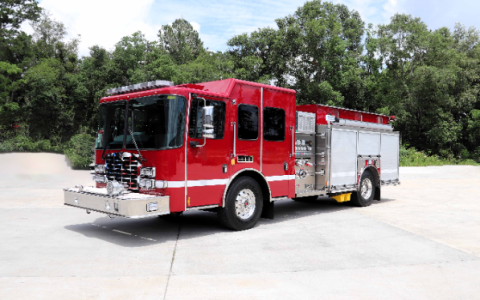How Much Does a Brand New Fire Truck Cost? A 2024 Price Guide
How Much Does a Brand New Fire Truck Cost? A 2024 Price Guide
If you’re a fire chief, municipal budget planner, or a fire apparatus enthusiast, the question of “how much does a brand new fire truck cost?” is a critical one. The short answer is that the price tag is far more complex than a single number. In 2024, a brand new fire truck can range from a modest $300,000 for a basic model to a staggering $1.5 million or more for a fully-equipped, custom aerial apparatus. This comprehensive guide will break down the factors that influence the final cost, explore the different types of fire engines, and provide you with the knowledge to understand this significant investment. We’ll dive into the specifics of pumper trucks, aerial ladders, and everything in between, giving you a clear picture of what to expect when your department is ready to purchase.
Understanding the Fire Truck Price Spectrum
The cost of a new fire truck is not like the MSRP of a family car. It’s a custom-built piece of life-saving machinery. The final price is a sum of its parts, labor, and the extensive customization required to meet the specific needs of a fire department. A standard commercial chassis can keep costs lower, while a custom, purpose-built chassis will be at the higher end. The type of fire apparatus is the primary starting point. Are you looking for a first-out pumper for structural fires, a heavy-duty rescue vehicle, or a towering aerial platform for high-rise operations? Each serves a distinct purpose and carries a vastly different price tag.
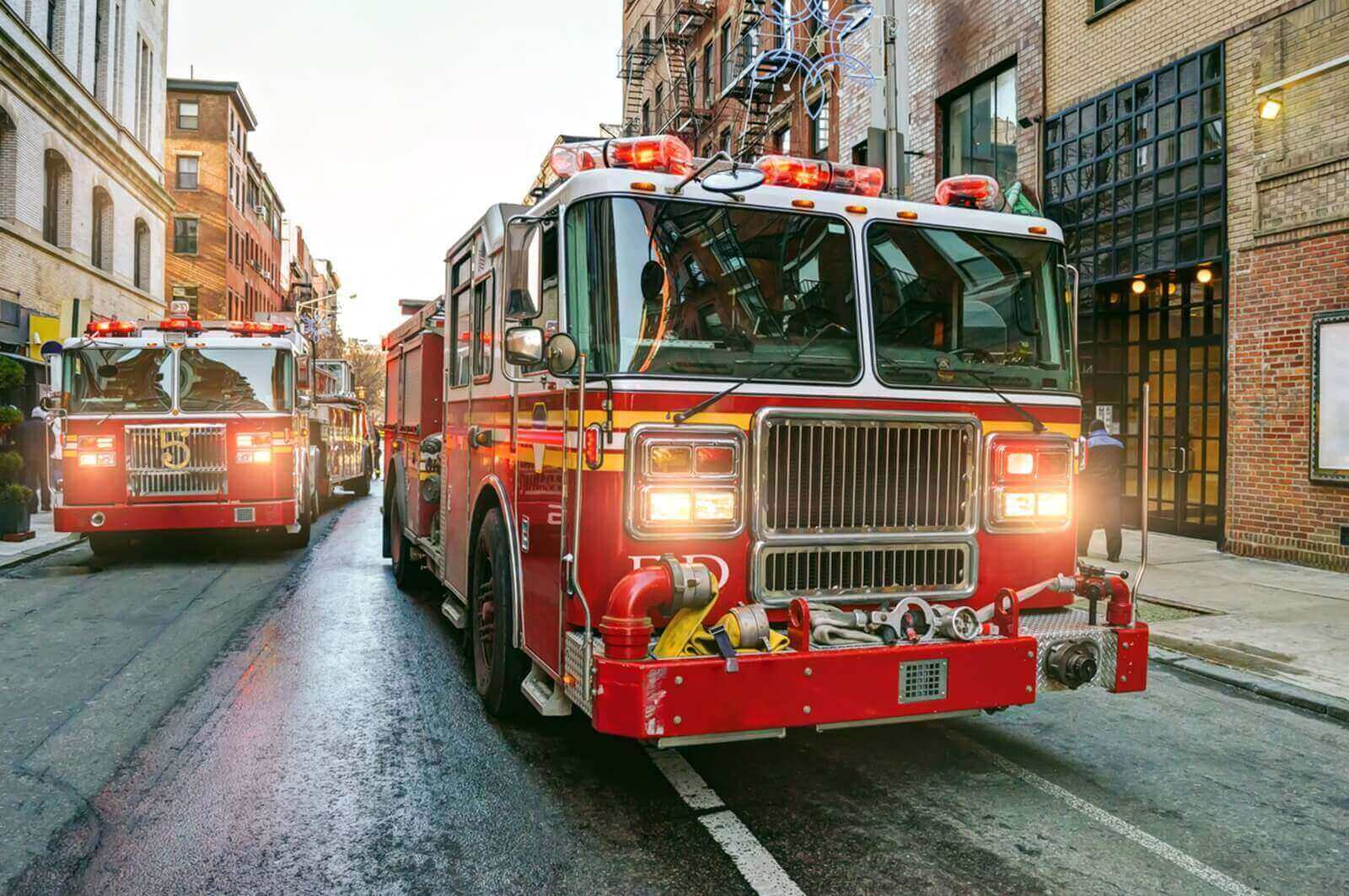
Breaking Down the Types and Their Costs
Let’s get into the nitty-gritty. The term “fire truck” encompasses several specialized vehicles. Here’s a detailed look at the most common types and their associated costs in today’s market.
1. Pumper Engines (The Workhorse)
This is the most common fire apparatus you’ll see responding to emergencies. A pumper, or engine, is designed to carry water, hose, and pump water to extinguish fires.
Typical Cost Range: $500,000 – $750,000+
What Drives the Cost:
- Chassis: A commercial chassis (like from Freightliner or Peterbilt) is more affordable. A custom, fire-service-specific chassis adds significant cost but offers better durability and maneuverability.
- Pump Capacity: A standard 1,500 to 2,000 Gallons Per Minute (GPM) pump is common. Higher capacity pumps increase the price.
- Water Tank: Tanks typically hold 500-750 gallons. Larger tanks add weight and cost.
- Compartmentation: The number and configuration of storage compartments for gear and tools are highly customizable.
2. Aerial Apparatus (Ladders and Platforms)
These are the big-ticket items. Aerial trucks provide elevated water streams and access to upper floors of buildings.
Typical Cost Range: $800,000 – $1.4 Million+
What Drives the Cost:
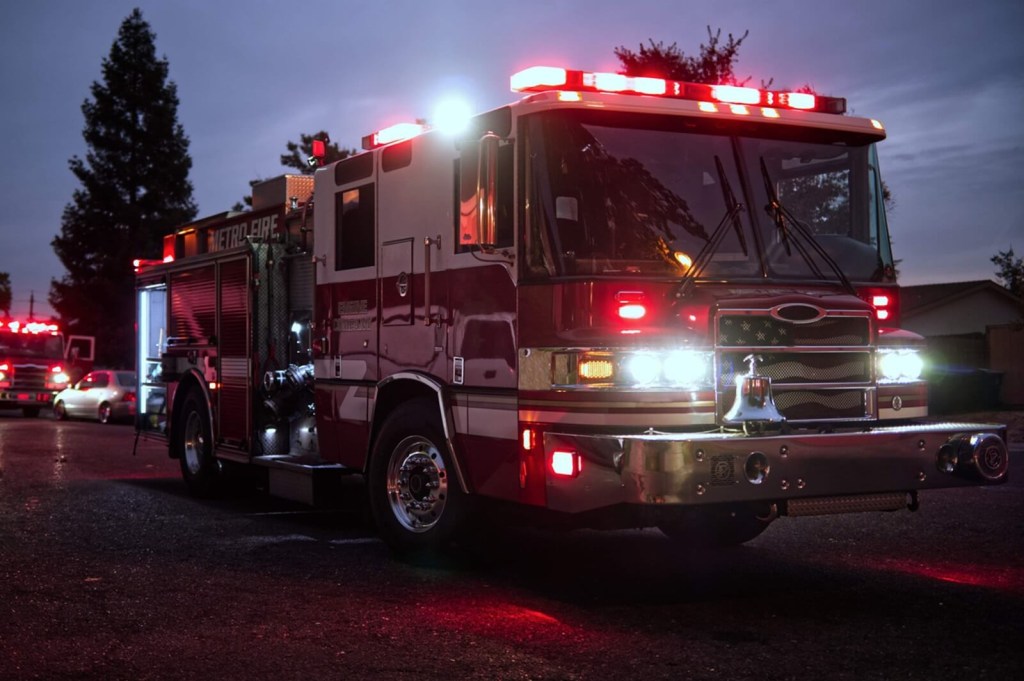
- Aerial Device Type: A traditional Tiller Ladder (with a separate driver in the rear) is often the most expensive due to its complexity. Straight Stick Ladders and Aerial Platforms (with a bucket) are also premium options.
- Ladder Height: A 75-foot ladder is standard, but 100-foot or even 110-foot ladders are available at a higher cost.
- Structural Material: Ladders made from high-strength steel are robust, while those using lighter materials like aluminum can improve performance but may affect cost.
- Outriggers and Stability: Complex hydraulic outrigger systems are essential for safety and add to the engineering and manufacturing expense.
3. Initial Attack and Wildland Fire Engines
Smaller and more agile, these vehicles are designed for rapid response, often in rural or wildland settings.
Typical Cost Range: $250,000 – $450,000
What Drives the Cost:
- Chassis Size: Often built on a medium-duty or heavy-duty pickup truck chassis.
- Off-Road Capability: Four-wheel drive, enhanced suspension, and high ground clearance are common and add to the base price.
- Pump and Tank: Features a smaller pump and a modest water tank (often 200-500 gallons) compared to a full-size pumper.
Key Factors That Inflate the Final Price Tag
Beyond the type of truck, several other critical elements dramatically impact what you’ll pay for a new fire apparatus.
- Customization: This is the single biggest cost driver. Every department has unique needs based on its response area. Hose bed layouts, tool mounting, lighting packages, and electronic control systems are all tailored to specification.
- Safety Systems: Modern fire apparatus are rolling tech hubs. Roll stability control, collision avoidance systems, 360-degree camera systems, and airbag systems are now standard or highly recommended, adding tens of thousands to the cost.
- Emissions and Engine Standards: Compliance with stringent EPA emissions regulations (like the current EPA 2027 standards on the horizon) increases the complexity and cost of the diesel engine.
- Apparatus Manufacturing Process: These are not mass-produced. They are hand-built by skilled technicians over hundreds or thousands of hours. Labor is a major component of the final cost.
Fire Truck Cost Comparison Table (2024 Estimates)
| Apparatus Type | Base Price Range | Fully Equipped Price Range | Primary Use Case |
|---|---|---|---|
| Initial Attack / Wildland | $250,000 – $350,000 | $300,000 – $450,000 | Fast response, rough terrain, brush fires |
| Pumper / Engine (Commercial Chassis) | $400,000 – $550,000 | $500,000 – $700,000 | Primary structural firefighting, EMS support |
| Pumper / Engine (Custom Chassis) | $550,000 – $700,000 | $650,000 – $850,000 | Dense urban areas, high call volume |
| Aerial Ladder or Platform | $900,000 – $1,200,000 | $1,000,000 – $1,500,000+ | High-rise fires, technical rescues |
| Rescue Truck | $600,000 – $800,000 | $750,000 – $1,000,000+ | Heavy rescue, vehicle extrication, HAZMAT |
Expert Insight: Navigating the Purchase Process
To add a layer of real-world expertise, we consulted with John Miller, a former fire chief with over 25 years of experience and a certified Fire Service Instructor. “The biggest mistake a department can make,” Miller advises, “is focusing solely on the sticker price. The procurement process for a new fire truck is a 3 to 5-year journey from initial planning to delivery. You need to think about the total cost of ownership, which includes future maintenance, parts availability, and the quality of training provided by the manufacturer.”
He emphasizes the importance of the committee-based specification, or “spec,” writing process. “Get your firefighters, mechanics, and drivers involved. They know the rig best. A well-written spec sheet ensures you get the apparatus you need, avoids costly change orders, and allows for fair bidding among manufacturers.” This process is crucial for ensuring the final vehicle is both effective on the fireground and a sound financial investment for the community.
Beyond the Purchase Price: Additional Costs to Consider
The initial cost of the fire truck itself is just the beginning. Departments must budget for several ancillary expenses.
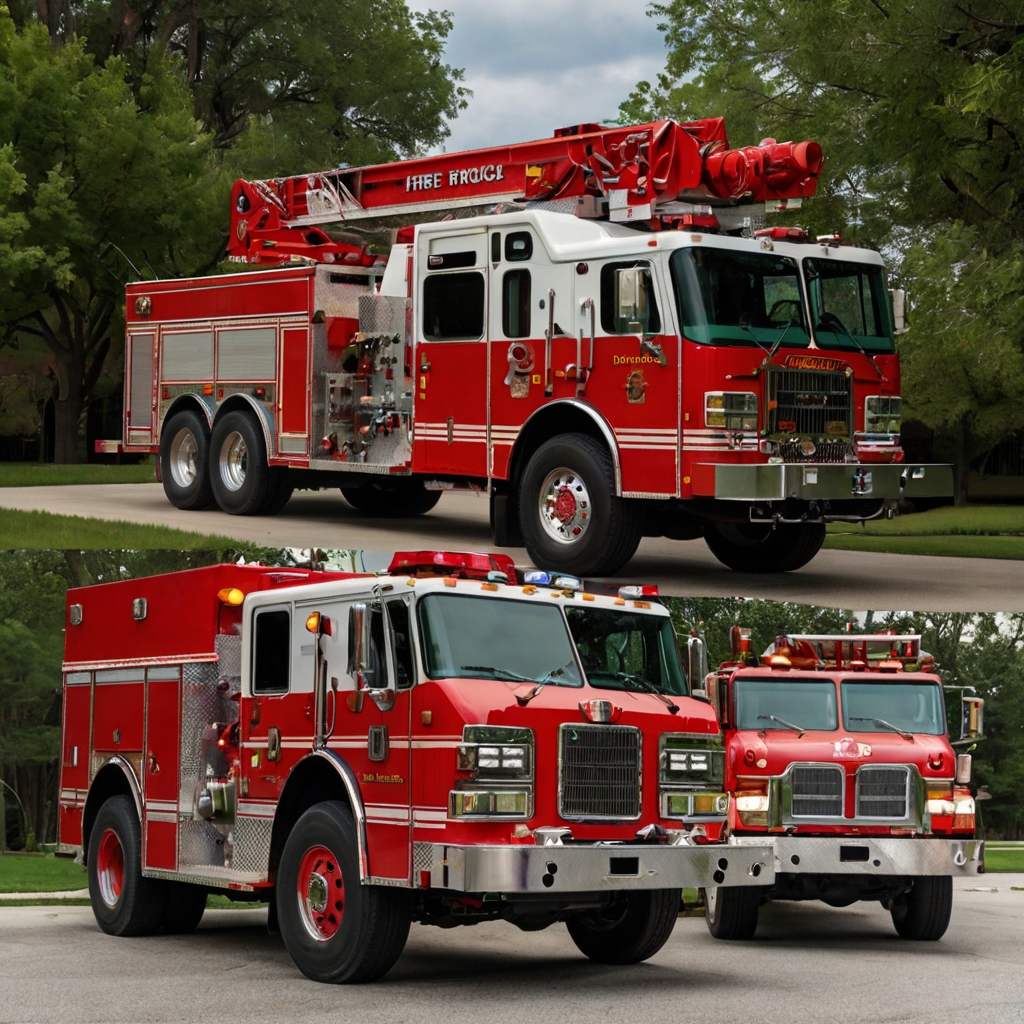
- Spare Equipment and Gear: The new truck needs to be stocked with hose, nozzles, self-contained breathing apparatus (SCBA), and medical equipment.
- Driver and Operator Training: Comprehensive training from the manufacturer on the new vehicle’s complex systems is non-negotiable for safety.
- Financing: Many municipalities use multi-year leases or municipal bonds to finance the purchase, which adds interest costs to the total.
- Ongoing Maintenance: Establishing a preventative maintenance schedule from day one is critical to the vehicle’s longevity and operational readiness.
Frequently Asked Questions
Q: Why is there such a long wait (often 2-4 years) for a new fire truck?
A: The lead time is due to the highly customized, low-volume nature of production. Each apparatus is built to order. Factors include supply chain delays for specialized components, a backlog of orders at major manufacturers, and the extensive time required for the design, engineering, and construction process itself.
Q: Are there any grants available to help pay for a new fire truck?
A: Yes, grants can be a vital funding source. The most well-known is the FEMA Assistance to Firefighters Grant (AFG) program. Departments can apply for grants to fund vehicles, equipment, and training. However, competition is fierce, and the application process is complex.
Q: What is the typical lifespan of a fire truck?
A: A well-maintained pumper engine is often kept in frontline service for 10-15 years before being moved to a reserve status. Aerial apparatus, due to their high cost, can have service lives of 15-20 years or more, provided they pass regular structural integrity tests.
Q: How much does a used fire truck cost?
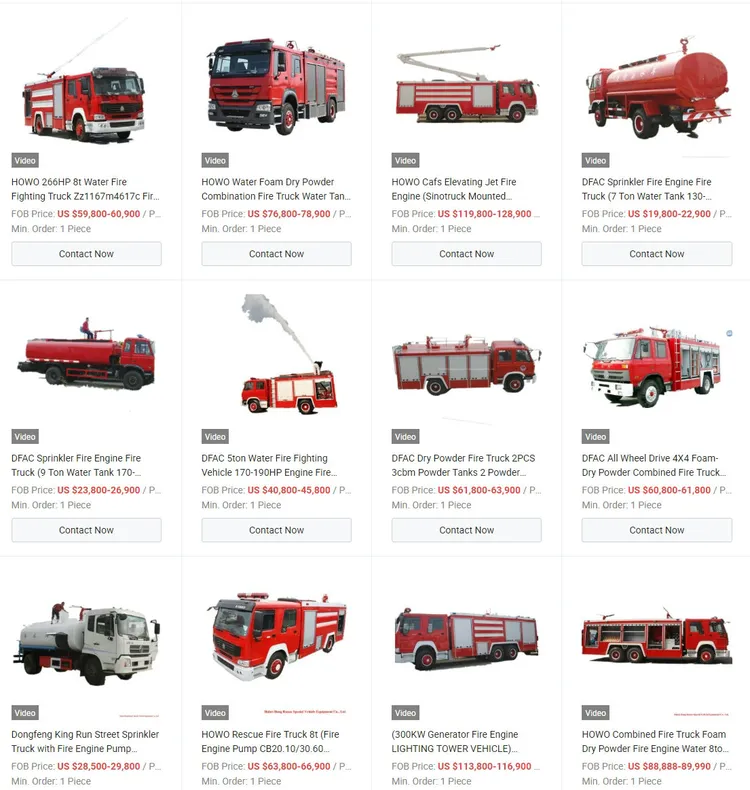
A: The used fire truck market is active. Prices vary wildly based on age, condition, and specifications. A 15-year-old pumper might cost $100,000 – $200,000, while a used aerial ladder could be $300,000 – $600,000. Buyers must be cautious of maintenance histories and potential obsolescence.
Final Thoughts on Fire Apparatus Pricing
Understanding the cost of a brand new fire truck requires looking past a simple price tag. It’s an investment in community safety, built upon a foundation of custom engineering, robust safety features, and meticulous craftsmanship. While the figures—from $500,000 for a standard pumper to over $1.4 million for a complex aerial truck—are substantial, they represent a tool designed to save lives and protect property for decades. A thorough planning process, clear specifications, and a focus on long-term value are the keys to a successful purchase.
Sources and Further Reading
- FEMA Assistance to Firefighters Grant (AFG) Program: https://www.fema.gov/grants/assistance-firefighters
- National Fire Protection Association (NFPA) 1900 Standard: https://www.nfpa.org/codes-and-standards (Governs automotive fire apparatus design).
- Fire Apparatus Manufacturers’ Association (FAMA): https://www.fama.org/
